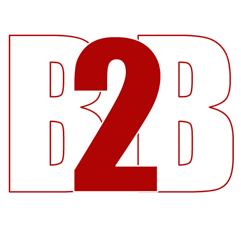When you search for “how to start a business” on Google, many influencers and content creators make it seem like a cakewalk. A lot of these folks make it seem like it’s so easy as if you barely have to put in an effort and there are no barriers to entry. But is that the case? Well, far from it, really! Even if you’re planning on running this business right from your home remotely it's still not that simple. Amidst setting up your brand and getting your first customers, it's easy to overlook some critical legal requirements.
Neglecting these can lead to serious consequences, from fines to operational disruptions. Seriously, it’s an absolute nightmare, and saying that you didn’t know won’t help you out in the slightest with fines and other forms of consequences. So, with that, here are some legal steps that small business owners tend to overlook even though they shouldn’t!
Registering Your Business
So, at first glance, this might seem pretty obvious, but it’s still something many business owners don’t do! Yes, even if this is a side hustle or a little project to earn yourself some money, a business is still a business! So many new entrepreneurs jump straight into operations without properly registering their business.
Depending on your location and business structure, registration might be necessary at the local, state, or federal level. This registration legitimizes your business, allows you to pay taxes correctly, protects your brand, and helps to keep your personal and business liabilities separate. If you get caught not registering (location pending), you could get into serious trouble. When you register for your business, you’ll also need to keep in mind that you’ll need to look into a filing service for a FEIN, because you have to pay taxes for it. So make sure you do this, too, or else you’ll get into extra trouble.
Getting the Right Permits and Licenses
Different permits and licenses may be required depending on what type of business you’re starting. Again, not every business is like this, but many have requirements, and yes, it can also depend on where you’re living. For example, a restaurant might need health permits, liquor licenses, and a general business license, while a contracting business may need construction permits in addition to its business license.
For example, if you want to do commercial cleaning in California, you’ll need a special license; in Kentucky, it’s not needed. Of course, some businesses don’t need any, such as a craft shop selling candles. But again, look into this, and never make any assumptions that you don’t need anything special to run your business! Operating without these can lead to fines and having your business shut down temporarily or permanently.
Understanding Your Taxes
Taxes can be a labyrinth, especially for a new business owner. You’ll need to understand which taxes you are liable for and how to file and pay them properly. Again, just like what was said earlier, you won’t get a slap on the wrist for not knowing, but you will still get into a lot of trouble if not done correctly! This might include income tax, sales tax, payroll tax, and potentially others, depending on the nature of your business.
If you want to make sure everything is 100% correct and you won’t risk any trouble (fines, back taxes, fees, etc.), then your best bet would be consulting with a tax professional. A tax professional can save you a lot of trouble and ensure you don’t miss any obligations.
You Need to be Insured
It’s true that when it comes to starting up a business, there’s a lot of money you need to spend, but one of them needs to be insurance. So, why do you need to fork over the money for this? Well, insurance can protect you from a variety of issues, including liability for customer injuries, property damage, and legal battles. Generally speaking, different types of businesses will need different types of insurance, so it’s important to discuss your specific needs with an insurance agent.
Intellectual Property Rights
So this one seems massive because it’s an increasing problem. So, on TikTok Shop, they had to remove hundreds of accounts and businesses selling items infringing on intellectual property rights. If you’re a social media influencer or content creator (like YouTube), then you might expect this to be an issue, too; the same goes for selling digital or physical items (including artist- services). So, with that said, you have to be careful and understand what’s an infringement and what’s Fair Use.
- 3 views





